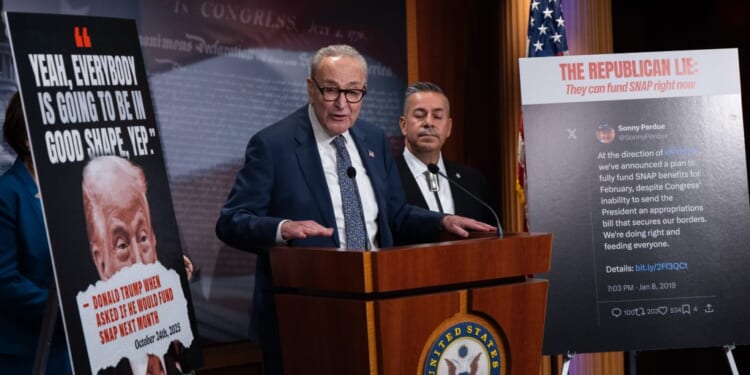As America endures yet another government shutdown, Washington is once again absorbed in the same circular debate over whether to increase Medicaid funding or focus on cutting waste and enforcing accountability. Meanwhile, states like mine are learning just how much of that spending never reaches the people it’s supposed to help.
Earlier this fall, my office uncovered more than $800 million in wasted Medicaid dollars in Kentucky alone — money paid out over four years for individuals who may no longer live in our state. These funds didn’t go toward medical care for vulnerable Kentuckians. They flowed to managed care organizations because the Department of Medicaid Services failed to follow federal alerts designed to prevent duplicate payments across multiple states.
This investigation led us to an especially troubling case. One person was discovered to be receiving Medicaid benefits concurrently from eight states. That individual didn’t just slip through the cracks — it was as if the system itself had forgotten what accountability means. And if this can happen in eight states at once, the problem is far bigger than any single state’s mismanagement. It’s a national problem, one that demands national attention and serious reform.
REPUBLICANS EYE SHUTDOWN BREAKTHROUGH AFTER VIRGINIA ELECTIONS
When I released these findings in September, I was reminded of how pervasive waste, fraud, and bureaucratic neglect have become in one of our largest public programs. It wasn’t just one investigation that reminded me of this: my office has also uncovered that Kentucky Medicaid benefits went to both ineligible immigrants and potential fraudsters who used the same Social Security numbers to obtain multiple Kentucky Medicaid accounts. The issue isn’t simply that government programs cost money — it’s that too often, no one is responsible for ensuring that this money actually helps patients. Every unnecessary payout represents a missed opportunity to serve those who truly need care.
President Donald Trump underscored this concern earlier this year with his memorandum on Eliminating Waste, Fraud, and Abuse in Medicaid. His directive called on both states and federal agencies to strengthen integrity systems, improve eligibility verification, and stop paying for services that never reach the intended recipients. That’s not ideological; it’s practical. Before we expand any program, we should prove we can manage it well. Building stronger guardrails around existing spending isn’t heartless; it’s how we ensure the most vulnerable are actually helped.
Yet in the current shutdown standoff, Washington seems determined to reverse that logic. Congressional Democrats are pushing to undo sensible oversight measures and to increase funding before basic problems are fixed. Republicans, by contrast, are asking for what most taxpayers would consider common sense: fund the government, maintain fiscal discipline, and debate long-term spending reforms afterward. A “clean resolution” that prevents the shutdown while maintaining a focus on accountability should not be controversial; it should be expected.
This isn’t merely a budgeting issue; it’s a moral one. Every Medicaid dollar wasted is a dollar taken from someone in genuine need, such as a diabetic person who can’t afford insulin, a child who needs therapy, or a senior struggling to fill prescriptions. When bureaucracies fail to check eligibility or enforce reporting standards, the outcome isn’t compassion — it’s fiscal negligence. And that negligence erodes public trust faster than any budget cut ever could.
RESTORING AMERICA: GOT FOOD STAMPS? TRY DOORDASH
Fixing Medicaid won’t happen overnight, but it begins with admitting that throwing more money at a broken system isn’t reform. The first step must be responsible oversight, such as clearing waste before we call for new funding, auditing systems instead of layering on new programs, and insisting on accountability in both state and federal agencies. Every taxpayer, regardless of party, should be able to count on a government that keeps its promises and guards its resources.
The debate surrounding this shutdown has exposed the deeper question of whether Americans still believe the government can manage their money honestly and wisely. Trust must be earned, not assumed. Restoring that trust starts with confronting waste head-on and refusing to ignore abuse simply because it’s uncomfortable to acknowledge.
Allison Ball serves as Auditor of Public Accounts for the Commonwealth of Kentucky.

















